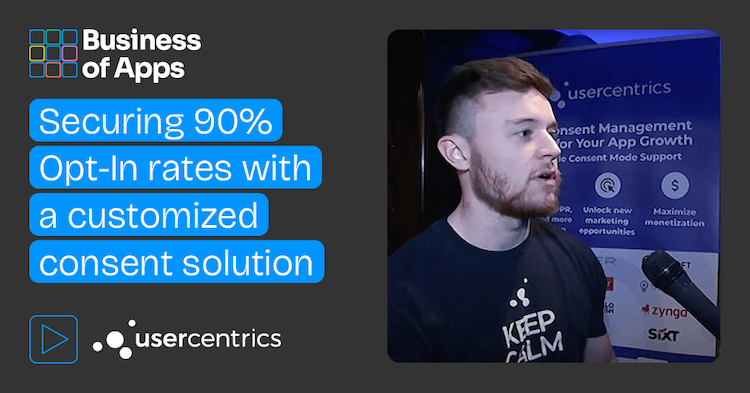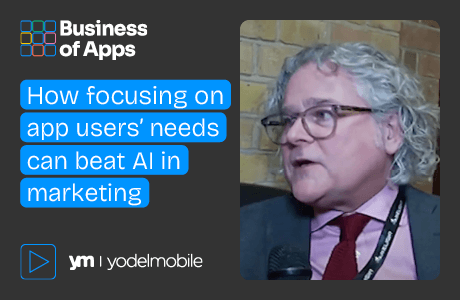During App Promotion Summit London 2024, Peggy Anne Salz met with leading app professionals to discuss the most recent advancements, trends, and innovations in the industry. In this episode of App Talk, Peggy and Owen Seymour from UserCentrics take you on a deep dive into ins and outs of the mobile app user consent.
Today, one of the biggest concerns for mobile app marketers is the requirement to obtain a mobile users’ consent to track their behavior across multiple apps.
It’s a reality for both mobile, where Apple requires such via its AppTracking Transparency framework and desktop, where the European GDPR and American CCPA regulations set strict rules for how website visitors personal information should be collected, processed and stored. Obviously, marketers are worried about their prospects of achieving high opt-in rates to grow their app’s user base and increase revenue.
To meet this challenge, UserCentrics offers fully-customizable solution that allows them to incorporate the consent asking tool that looks natively to the app. The result is that app users aren fully aware that a consent request message comes from the app. It leads to app developers seeing up to 90% Opt-In rates for their apps.
Building and maintaining trust between a brand behind the app and its users is paramount to the success of a mobile app. Because user consent tools, like the one from UserCentrics, allow to match their look and feel with the app, the app users aren’t mislead to believe that some third-party tries to get their consent.
How UserCentrics Secures 90% Opt-in Rates with Customized Consent Solution with Owen Seymour
Now, user consent comes in many flavors, not just tracking permission for the purpose of advertising and marketing, including asking for a consent to track app users’ location, third-party service integration, health and fitness data, and more. User consent solutions can accommodate all these types of a contest for app publishers and developers.
It’s indisputable – asking for a mobile app user consent has created a lot of extra work for app developers and publishers but in a long run it will pay off because of an increase in brands’ loyalty and trust. An app user consent customization shouldn’t be limited with look and feel only, it is also important to make sure the app users receive consent messages that are relevant to them.
Finally, we need to realize that we’re at the beginning of this new norm of asking mobile app users for their consent to track their behavior across multiple apps. Over time more and more countries and companies will join the trend.
Watch the full App Talk interview here to unlock all of Owen Seymour’s tips.













